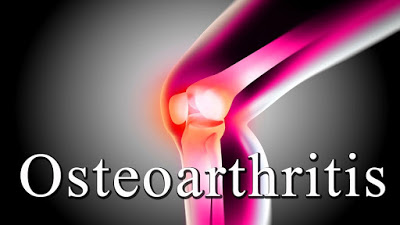If your fingers, hips, knees, or other joints feel painful when you use them, you could have osteoarthritis (sometimes just called arthritis, or OA). It’s a swelling of your joints brought on by wear and tear over many years. The cartilage (a rubbery tissue covering the ends of your bones) breaks down over time, leaving your bones without anything to cushion them. This causes them to rub against each other. Your joints can become inflamed. It can be very painful.
There’s no cure for OA, but there are a lot of treatment options you can try.
Physical Activity
Even though you may not feel like doing it, exercise is the best thing you can do to relieve arthritis pain and lessen joint damage. Exercise can also help you lose weight. That will put less stress on your joints. You should try to get exercise in these three categories:
Stretching: These are exercises to increase your flexibility and range of motion and lubricate your joints. Your doctor may prescribe specific stretching exercises. Yoga, Pilates, and Tai Chi classes are other good ways to get your stretching in.
Strength training: This will build muscle and can protect your joints from injury. Exercises could involve lifting weights or simply using your own body weight (like doing push-ups or sit-ups).
Aerobics: These exercises will strengthen your heart and lungs, cut down on fatigue, and increase your stamina. You will also burn a lot of calories. Typical aerobic exercises include walking, running, riding a bicycle, swimming, or using a treadmill.
The Arthritis Foundation says the two best exercises for people with arthritis are walking and water aerobics. Both are easy on the joints and good for those who are overweight or just starting to exercise. They improve heart health and physical conditioning. You don’t need to know how to swim to do water aerobics. They’re done in a swimming pool inshoulder-height water.
Lose Weight
Obesity can cause arthritis. It puts a lot of stress on your hips, back, and knees. But even if you’re only moderately overweight, you’ll still benefit if you shed some pounds.
Arthritis Diet
It’s also known as a Mediterranean or anti-inflammatory diet. This means eating more of the foods that are good for joint health. Fish, nuts, fruits and vegetables, beans, whole grains, and olive oil all fall into that category.
Medicine
There are a number of medications that are good for arthritis pain. Talk with your doctor before starting any of them. Common over-the-counter medications are aspirin, ibuprofen, and naproxen. Prescription medications include oxycodone and hydrocodone. Another option is a corticosteroid injection at the site of your joint pain. This is normally only given if the pain is very severe.
Natural Remedies
Some herbs and supplements (capsaicin, flaxseed, ginger, ginkgo, and turmeric) are said to be good for arthritis. But the most popular ones for pain relief are chondroitin sulfate and glucosamine. Both are made of compounds found in cartilage. They may help your body regenerate the cartilage on your joints, but evidence remains sketchy.
Studies have shown that they may provide modest pain relief and could be tried if you are unable to tolerate other pain medications. The American College of Rheumatology doesn’t currently recommend the use of chondroitin sulfate and glucosamine.
Other natural remedies include acupuncture, massage, heating pads, and ice packs. Reducing stress by maintaining a positive outlook may also help.
Physical Therapy
Physical therapists can work with you on exercises to reduce pain and improve your range of motion. They can also help fit you with braces to support your joints or suggest shoe inserts that can also help to take the pressure off.
If you need additional help, scooters, walkers, and canes may be recommended to help you get around. Tools like jar openers and steering wheel grips can help you manage day-to-day life more easily when you have trouble gripping things. Your therapist can give you advice on how to use them.
Surgery
If you’ve tried a number of remedies and got no relief or only a temporary reprieve, your doctor may suggest surgery. She’ll talk with you about what makes sense for your situation.

